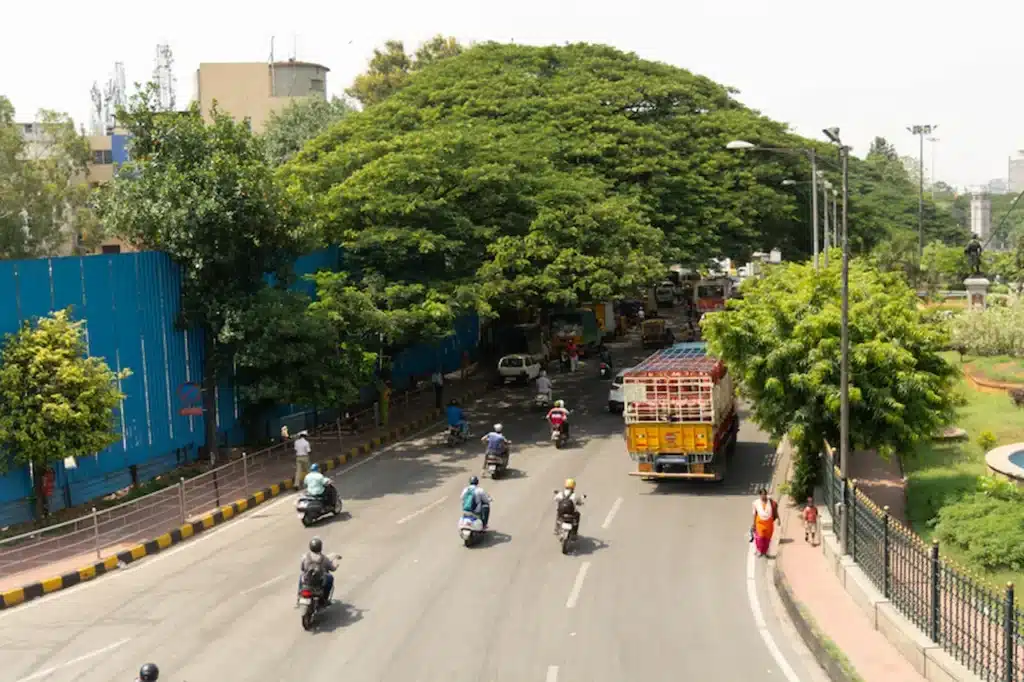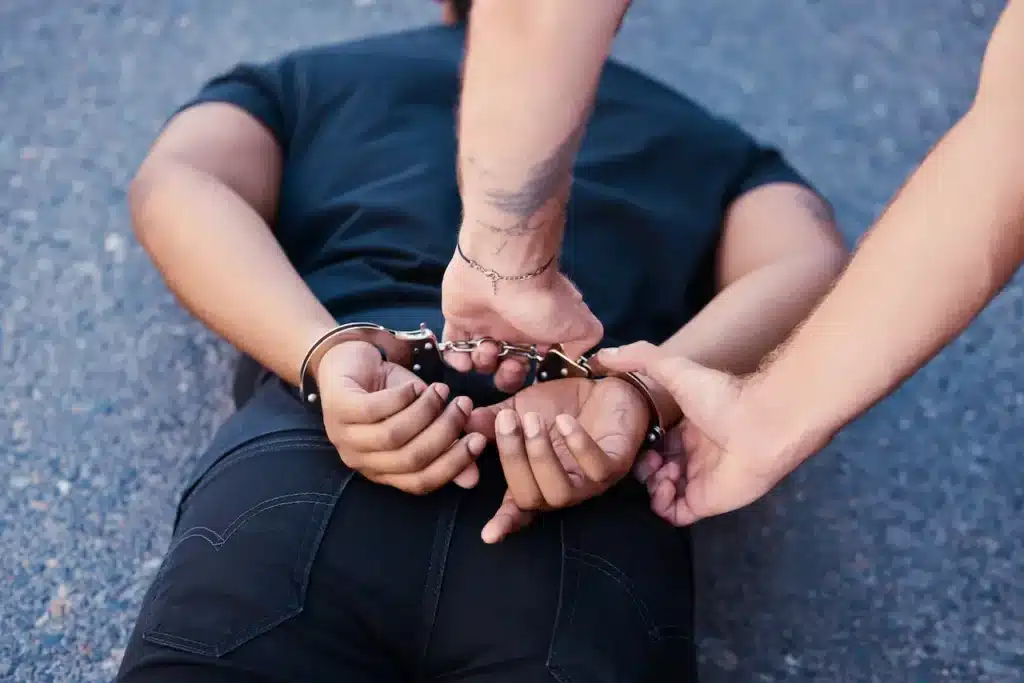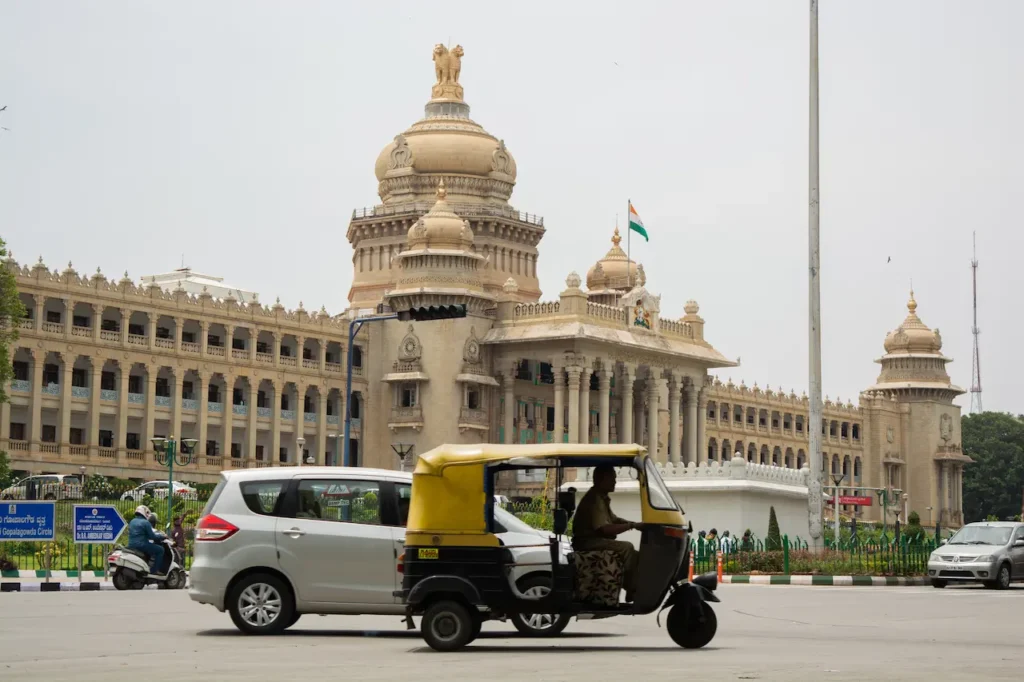Scam City took a different approach in the golden age of travel shows. This daring TV series revealed the dark side of destinations instead of glorifying them. Scam City was launched in 2012 by investigative journalist Conor Woodman. Its goal was to expose the dirty, unpleasant truths behind some of the most popular cities around the world, the scams that tourists are often victims of.
Scam City is not like other travel shows, which focus on spas and sunsets. It gets right into trouble. Woodman is both a guide and guinea pig as he searches out the city’s hustlers and scammers. His mission? His mission? To expose the scams to viewers and explain how they work and why they are successful.
The Premise: Do Not Fall for the Scam
Scam City is a series of episodes that follow a simple but daring formula. Conor Woodman goes to a tourist hotspot and allows himself to be scammed. He dives headfirst into the scam, whether it is dodgy tour guides, fake clubs, counterfeit goods, or dodgy cabs. He takes every offer he can get — drinks, rides, souvenirs, and even proposals from sex workers — in the name of education.
This investigative approach is a combination of travel documentary and undercover exposé. Woodman doesn’t want to shame people or cities, but shed light on criminal undercurrents which prey on tourists. Woodman’s unique method captures psychological tricks scammers employ such as pressure, flattery and misdirection to make viewers aware of red flags.

Season One: Around the World with Ten Scams
In its first episode, Scam City examined ten destinations around the world, all of which are known to attract millions of tourists and their wallets.
1. Buenos Aires, Argentina
Season opens in Argentina’s Capital, where tourists are targeted by scams such as taxis, fake money exchanges, and rigged clubs. Woodman reveals how counterfeit bills are hidden in change and how tourists get lured into clubs where they are forced to pay outrageous tabs.
2. Prague (Czech Republic)
Scams in Prague range from taxi drivers overcharging to “false” friends locals who are friendly and take you out, but disappear before you get the bill. Conor’s evening with alleged locals becomes a lesson on deception.
3. Rio de Janeiro, Brazil
Scammers are everywhere during Carnival. Pickpockets often work together, while hustlers offer fake tickets and high-priced drinks. The party atmosphere hides a web of petty crimes.
4. Barcelona, Spain
Distraction theft in Barcelona is an art. The thieves work in groups and pretend to bump into tourists or drop things to divert attention. They then steal wallets with the blink of an eye.
5. Rome, Italy
Rome’s scams are often based on the ancient charm of Rome. Tourists are often ripped off by scammers, including fake gladiators who charge for photos and unlicensed tour guides near popular landmarks.
6. Delhi, India
Conor meets scammers in Delhi who pose as doctors and offer fake treatment for common traveller ailments. Taxi drivers will also try to trick tourists into changing hotels due to fake closures.
7. Istanbul, Turkey
Markets and mosques are prime targets for hustlers. The touts pretend to be friendly locals who offer free tours. They then pressure tourists into purchasing expensive carpets.
8. Bangkok, Thailand
Bangkok is the home of the notorious gem scam. Tourists are offered amazing deals on gems, “for resale overseas,” only to find out they’re worthless.
9. Las Vegas, USA
Scams in Vegas range from street games that are rigged to the player’s disadvantage to fake promoters. Woodman explores the storm drain tunnels below the city to find a hidden population.
10. Marrakech, Morocco
It’s difficult enough to navigate Marrakech medinas, but add unofficial “guides, who demand tips, and you may find yourself lost or under pressure.

Season Two: Deeper, Riskier, and More Exciting
The second season of Scam City pushed the boundaries, tackling more complex and controversial territory.
1. New Orleans, USA
Woodman exposes gambling scams and street con games like “Bingo Cajun,” where operators use sleight of hand to rob tourists.
2. Mexico City, Mexico
Woodman investigates the scams that are linked to more serious crimes kidnappings and corrupt police. Unsuspecting tourists can be at risk because of the beauty of the city.
3. New York City, USA
NYC is not a city that has a good reputation for being well policed. Fake designer goods are still available, as are unofficial street performers who charge tourists to take photos, and the perfume scams on Times Square.
4. Amsterdam (Netherlands)
One of the most controversial episodes. Narratives are dominated by drug scams, ATM tampering, and fake police officers. The incident sparked an outcry from city officials.
5. Jerusalem, Israel
Here, scams are given a spiritual spin — such as bogus donation schemes at religious sites and pickpockets who operate near sacred landmarks.
6. Mumbai, India
Woodman has experienced a web of scams that are part of everyday travel, from airport taxi hustling to staged beggar rings.
7. Paris, France
Conor discovers scams involving “free” sketches, forgeries sold as student artwork, and overcharges at restaurants that target non-French speaking customers.
8. London, UK
Even Woodman’s hometown is not free of scams. He exposes fake donation collectors and overcharging taxi drivers who prey on tourists.
9. Bogota, Colombia
Woodman investigates a zombie drug that renders victims helpless, before they are robbed or worse.
10. Hong Kong
The episode shows fake designer watches, sugar-daddy schemes, and secretive, hidden massage parlours.
The Show that Has Real-World Consequences
Scam City did not just shock the viewers; it also ruffled some feathers in cities that it featured. After the show was broadcast, the Turkish government shut down several criminal organisations, including aggressive tout networks and clip joints. In response, the government tightened regulations to protect tourists.
The reaction in Prague was fierce. Officials in Prague claimed that the scams had been staged, and the show was based on actors. Investigations revealed that many of the businesses featured had already closed before filming. National Geographic has agreed not to re-air its Prague episode, even though no legal action was taken.
Amsterdam’s Mayor accused the show of paying criminals for reenactments of crimes. National Geographic admitted later that some scenes had been staged. However, they maintained that no actors were involved and that the events were all based on actual scams.
The show had a profound impact, despite the controversy. The show prompted city officials to review their safety measures for tourists. Others responded with reforms; some with threats of legal action.

Not Just a Performance but A Street Smarts Lesson
Scam City was not just a compelling show because of the excitement that comes from watching a reporter navigate danger. The show was dedicated to education. Each episode contained a practical lesson:
- Do not accept assistance from strangers who offer unsolicited advice.
- Never agree to a price without first discussing it.
- Don’t be distracted by distractions. They are often used to cover theft.
- Don’t assume that everyone wearing a uniform is a legitimate official.
The show humanised many scammers. The interviews revealed that poverty, lack of opportunities, and desperation are what drive people to these shady businesses. The film portrayed them as not only villains but also as participants in a dysfunctional tourism economy.
Conclusion
In a sea full of travel documentaries that are aimed at making you feel good, Scam City is one of the rare ones to tackle the less glamorous side of international tourism. The film reminded viewers that not all dangers are masked. Some smile, shake hands, and ask for help.
Conor Woodman’s bravery, which often borders on stupidity, served a greater purpose. He gave others the ability to protect themselves by putting himself in danger. He made us wonder what’s underneath the Instagram photos and glossy brochures.
Scam City, more than just a show, is a warning. It’s a good reminder for any traveller, whether they are seasoned or new to the world.
Sometimes, paradise has a cost you didn’t expect.




